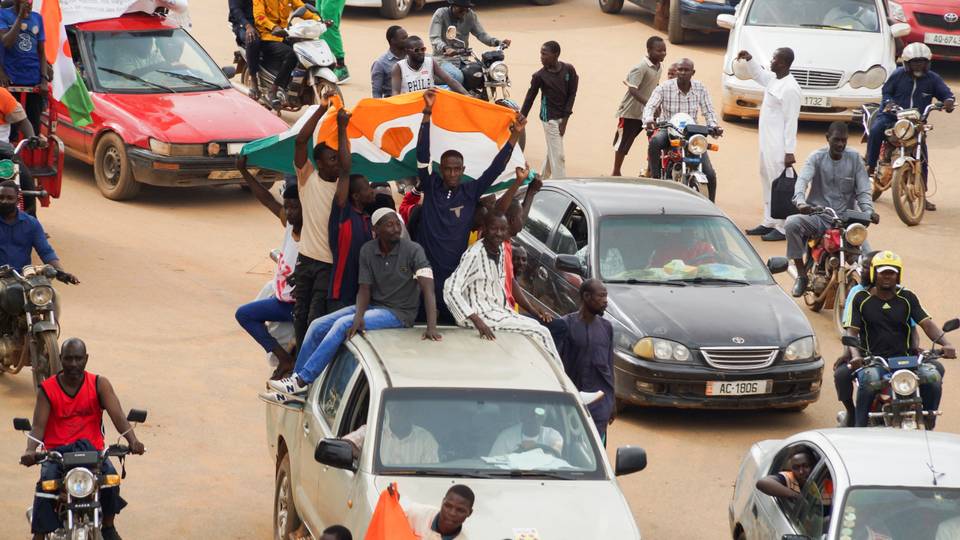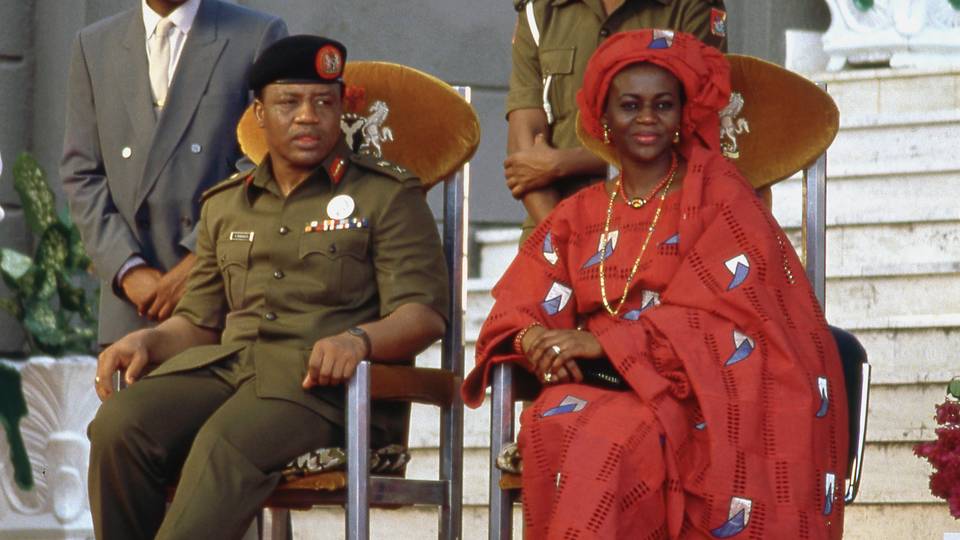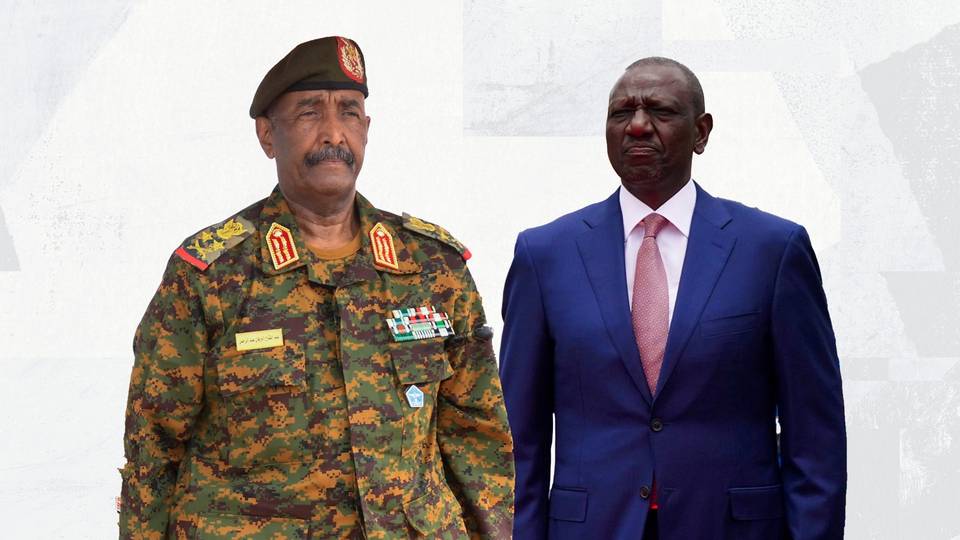Sport
Dollar
38,2552
0.34 %Euro
43,8333
0.15 %Gram Gold
4.076,2000
0.31 %Quarter Gold
6.772,5700
0.78 %Silver
39,9100
0.36 %A year after the coup in Niger, the apprehension among citizens appears to be dissipating as radical steps by the junta, like shutting out opportunistic Western powers and forging new alliances, create the base for stability and development.

By Mazhun Idris
Ibrahim Maman, 37, was inside a grocery shop at Niger's Damagaram on July 26 last year when he heard that the military had wrested the reins from deposed President Mohamed Bazoum in a dramatic takeover at Niamey, 950km away.
"I remember it was a Wednesday," says Ibrahim, a citizen journalist who runs a news blog.
"I decided to check the veracity of the news online and came across multiple versions of an attempted coup. My first reaction was to dismiss the story as fake news."
He would soon receive confirmation through a local TV news bulletin that Niger had indeed witnessed a coup d'état.
As his mind raced back 13 years to February 18, 2010 – when Niger last experienced a putsch – Ibrahim felt a tad uneasy.
A year later, some initial fears that filled his mind seem to have been put to rest by an unusual transition from an elected government to a military administration.
Regional complexities
Niger, a country in West Africa with a predominantly Muslim population of over 25 million, gained independence from the French colonial regime in 1960.
As part of the expansive Sahel region that stretches south of the Sahara Desert, this French-speaking country of diverse ethnicities has historically been difficult to govern, because of its geography and proximity to multiple states.
Niger also has the highest total fertility rate in the world, averaging close to seven children per woman in 2022.
The toughest challenge is tackling organised crime, mainly migrant trafficking, arms running, and terrorism.
The key justification given by the putschists for dismissing former President Bazoum's government was that they wanted to avoid further economic and security deterioration that proved stubborn to overcome by the past governments.
"There has been a lot of progress and there is room for more,'' Ibrahim says.
Changing perceptions
Niger's military government appears to be getting increasingly popular across the population as it shuffles global ties from West to East. The junta has already brokered new friends.
In spite of the threats of isolation by the likes of France and the US, the junta has chosen to terminate military pacts and development partnerships with Western countries and institutions, resulting in shrinking overseas development support.
The ruling Conseil National pour la Sauvegarde de la Patrie, or CNSP, has also expelled French and American troops, besides forcing the closure of the latter's drone base.
In June, the junta revoked the operating licence of French nuclear fuel producer Orano at one of the world's biggest uranium mines. Days later, it announced that the Imouraren mine had returned "to the state's public domain".
This policy of the junta remains the rallying point for a rebirth of nationalistic sentiment.
"I could say some progress has been achieved by the CNSP government led by Abdourahamane Tchiani in the past year, notably in terms of freedom from French security control," Ibrahim tells TRT Afrika.
The erstwhile civilian government had signed security agreements with the Western powers that didn't yield credible improvements to sway public opinion.
"Why do we have foreign military bases in our country housing their personnel? Why didn’t they stop gunmen, arms running, and drug trafficking?" These are some of the questions that lingered in the public consciousness as Niger battled al-Qaeda associates, Daesh offshoots, and Boko Haram terrorists from neighbouring Nigeria.
Time for progress
Conflicts are the last thing a country like Niger needs, given its poorly diversified economy, which is dependent on agriculture for 40% of its GDP, according to World Bank data.
In 2023, the extreme poverty rate in Niger was pegged at 52%, peaking at 14.1 million people.
Two years earlier, Niger had its first democratic civilian transfer of power in five decades, when Bazoum was inaugurated as the president after the two terms of Mahamadou Issoufou.
While the July 26, 2023 coup d'état by members of Niger’s presidential guard was greeted with shock outside the country, photos showing crowds in Niamey cheering the new uniformed rulers made for a strange contrast.
With military takeovers in Mali and Burkina Faso, it would have suited the Western powers for Niger to remain a reliable regional partner for their so-called war against extremist violence.
Cut to 2024, a different scenario is playing out, much to the Western axis's discomfiture.
"Our citizens expressed their desire to see the end of foreign military bases after years of presence in Niger. In fact, we have been open with our wish for cessation of partnerships with these neocolonial powers," says the junta.
"We fail to see any benefits for their presence, while our soldiers and civilians keep getting killed. July 26, 2023, is thus our second independence day."
Looking to the future
CNSP has also stood its ground in the diplomatic standoff with the regional bloc ECOWAS, which first demanded the restoration of the civilian dispensation, and later, the handover of deposed President Bazoum.
In recent months, Niger seems to have eased its dispute with neighbouring Benin, where a key China-backed crude oil pipeline uses Beninese seaports.
Amid the unexpected changes that have already come about, Niger's population remains hopeful that security, sustainable development, food security and social amenities are now within reach.
Ibrahim believes his country is getting back on track, with the goals clearly marked.
"We dream of achieving progress through increased literacy among the teeming masses, the majority of whom are young," he tells TRT Afrika.
➤ Click here to follow our WhatsApp channel for more stories.
Comments
No comments Yet




















Comment